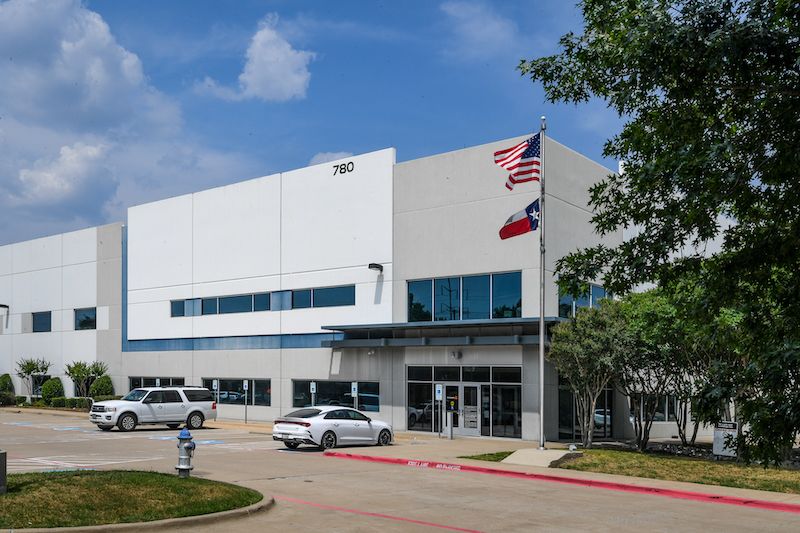The industrial real estate sector in Dallas, Texas, has witnessed remarkable growth and achieved significant milestones in recent years. With the market surpassing the one-billion-square-footage mark, second only to Chicago, it has become a key player in the industrial sector.
According to Q1 2023 data from Colliers, the Dallas-Fort Worth (DFW) industrial market continues to thrive. Construction levels remain elevated, with 62 million square feet under development. However, for the first time in eight quarters, the quarter-over-quarter construction growth rate has slowed. The delivery of a record 19 million square feet of speculative development has affected vacancy levels, resulting in a slight increase to 6.3%.
Rental rates in the warehouse sector have surged to all-time highs, with big-box rates reaching $5.72 NNN and non-big-box warehouse rates peaking at $8.39 NNN. These escalating rental rates indicate the robust demand and competitive nature of the Dallas industrial market.
To truly understand the Dallas industrial market, it is crucial to examine submarkets within the region. Transwestern Development Company Regional Partner Denton Walker emphasized the variations across different submarkets.
“The best submarkets in North Texas, such as north Fort Worth and north Dallas, have positive lease activity where there is better labor supply available,” said Walker. “The southern sector of the Dallas-Fort Worth area will experience slower lease activity for ample bulk distribution warehouse space due to the large supply available and less labor available.”
By focusing on submarkets, real estate professionals and investors can identify specific areas with unique characteristics, labor availability and infrastructure that align with their requirements.
In addition to submarkets, another delineation that’s important is the size of the project. Allen Gump, EVP at Colliers, splits the market between projects larger than 250,000 square feet and those that are smaller.
“In some places in the Metroplex, it’s very hard to find 150,000- or 200,000-square-foot space. In Dallas, for example, you really do have trouble finding spaces under 250,000 feet that fit the criteria that you’ve got,” Gump said. “The dynamics are very different.”
He explains that industrial development in the Dallas market has reached a turning point. While there are still numerous buildings under construction, the feverish pace of development has eased. Developers are now adopting a more cautious approach, with fewer new projects being initiated without significant leasing activity.
“It wasn’t that long ago that there were something like 17 million-square-foot buildings under construction around the Metroplex. That’s a lot of million-square-foot buildings,” said Gump. “It costs a lot to carry a million-square-foot building for several months or even longer.”
With factors such as rising interest rates and reduced liquidity, developers are now seeking greater stability and demand before commencing construction. This shift signifies a return to a more sustainable pace of development.
Newmark Managing Director Zach Riebe shed light on the capital markets for industrial properties in Dallas. Smaller, bite-sized deals are currently in focus due to challenges in financing larger projects. This shift aligns with the cautious approach taken by both equity and debt providers.
“There’s a theme we continue see is that buyers, developers, and equity/debt providers continue to prefer smaller, more infill projects in today’s environment, whether that be pursuing acquisitions or speculative development,” Riebe said. “However, we anticipate that there will be some larger portfolio trades and capitalizations in 2023 as larger institutional investors creep back into the market and feel the pressure to deploy capital .”
While the cost of capital has increased, the broader macroeconomic tailwinds in Texas, including favorable borrowing costs and availability of capital, continue to support the demand for industrial real estate. Despite the evolving financial landscape, the Dallas market remains a strong performer compared to other tier-one markets across the country.
Newmark President and Global Head of Industrial and Logistics Jack Fraker underscored the strength and resilience of the Dallas industrial market.
“The market’s fundamentals, including leasing activity, absorption, and rental rate growth, are at record levels,” he said. “The presence of a vast inventory of smaller buildings offers reliable and predictable returns, particularly in infill submarkets closer to population centers.”
Looking ahead, the Dallas industrial sector is expected to maintain its strength due to a variety of factors. These include the exceptional labor force, excellent transportation infrastructure, central location, access to major airports and availability of economic incentives for industrial development. The growth of educational institutions in the area, such as Southern Methodist University and the University of Texas, further contributes to a talented workforce.
With a diverse range of submarkets, a slowdown in big-space development, and a cautious approach in the capital markets, the Dallas industrial sector is adapting to changing conditions. Despite challenges, the market’s fundamentals remain strong, attracting investors and tenants alike. As the sector moves forward, careful analysis of submarkets and an understanding of future trends will be essential to unlocking the full potential of the Dallas industrial market.









